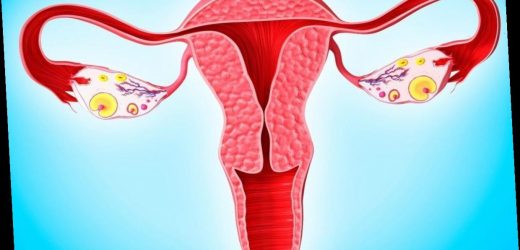THOUSANDS of women will benefit from the biggest breakthrough in ovarian cancer treatment in decades.
Drugs watchdog Nice says the NHS should offer patients a daily pill that can keep tumours under control for years.
Around 3,000 more people a year in England are likely to receive the drug named Niraparib.
It will be given to women diagnosed with advanced ovarian cancer to help prevent tumours regrowing after chemotherapy.
Preliminary trial results show it can keep the disease at bay for an average of six months longer than placebo treatments.
And some women are still in remission more than three years later – allowing them to live a near-normal life.
The drug was previously only available to women whose disease had come back.
Annwen Jones, from charity Target Ovarian Cancer, said: “Today’s announcement is a major milestone in the fight against ovarian cancer, bringing hope during a pandemic where we have serious concerns about how many women are being diagnosed late
“It’s the first time thousands of women will benefit from this innovative drug from the very beginning of treatment.
“We haven’t had such a breakthrough drug available to so many since the introduction of chemotherapy drug paclitaxel – Taxol – in the 1990s.”
What are ovarian cancer’s signs and symptoms?
Ovarian cancer affects the ovaries, which are a small pair of organs located in the female pelvic cavity.
They are an important part of the female reproductive system as they connect to the womb and store eggs.
If you have ovarian cancer, cells in or around your ovaries start to grow abnormally which can lead to tumours.
Ovarian cancer may affect one or both of your ovaries, and there are several types that can affect women of all ages.
Things to look out for include:
- A swollen stomach
- Feeling bloated constantly
- Needing to urinate frequently
- Discomfort in your tummy or pelvic area
- Feeling full quickly when eating
Prof Jonathan Ledermann, from University College London, said: “Today’s decision marks a turning point in advanced ovarian cancer treatment, allowing clinicians to use a key therapy at an earlier phase of treatment and in many more women than ever before.
“This could significantly increase the likelihood that we can delay a woman’s cancer from progressing – for months, perhaps even years longer than is currently possible.
“Maintenance therapy has already changed how we treat ovarian cancer and the decision to recommend niraparib is yet another important step forward on this journey.”
Around 7,500 women are diagnosed with ovarian cancer in the UK each year, with 4,100 dying from the disease.
It is known as the “silent killer” because its symptoms are often mistaken for other less serious conditions.
It means two thirds of patients are diagnosed late – when the tumour has already spread and may be incurable.
After two brain surgeries and further radiotherapy, niraparib has given me another lease of life. It's much less harsh than some other treatments and I'm doing really well
Victoria Clare, from charity Ovacome, said: “Today’s news will bring deep relief to a great many women with advanced ovarian cancer, offering them the reassurance that they will be able to access the therapy that they need on the NHS.
“It is vital that women are given every opportunity to live as full a life as possible, for as long as possible.
“This is what today’s decision offers and why it is so important to so many women.”
Lyndsey Hadden, 64, from Enfield, North London, said niraparib had given her a “new lease of life” after first taking it in November 2019.
She said: “I was diagnosed four years ago and started taking niraparib after the ovarian cancer spread to my brain.
“After two brain surgeries and further radiotherapy, niraparib has given me another lease of life. It's much less harsh than some other treatments and I'm doing really well.
“It meant I could get back to my life including doing yoga, walking and swimming – when lockdown permits!”
The decision made by Nice in England will also be replicated in Wales and Northern Ireland.
A decision is expected in Scotland later this year.
Marc Clausse, from drugs firm GSK, said: “Maintenance therapy has become a mainstay of treatment in advanced ovarian cancer and making sure it is available as early as possible is key to keeping this debilitating cancer at bay for as long as possible.
“At GSK, we are extremely proud to be part of this historic milestone which takes us one step closer to reaching our goal to maximise survival and quality of life for people in the UK living with cancer.”
Over 3,500 fewer patients than expected were diagnosed with bowel cancer in England between April and October last year.
Researchers from the University of Oxford warn the fall – due to lockdown – is likely to have “severe consequences on survival”.
Source: Read Full Article



